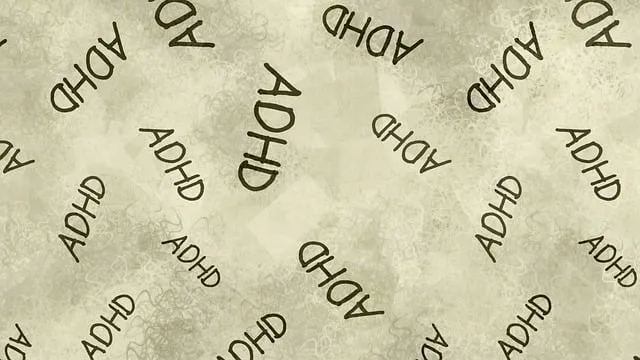The Kaiser Permanente behavioral health center Louisville plays a pivotal role in shaping public understanding of mental health through responsible media representation. By offering tailored programs that promote mental wellness and dispel stereotypes, they aim to create a supportive society that prioritizes diverse audiences' emotional well-being. Their initiatives include educating audiences about mental illness, encouraging media literacy, and fostering open dialogue, all while collaborating with community organizations to ensure accurate and compassionate portrayals in media.
Mental illness representation in media significantly influences public perception and understanding of mental health. This article explores strategies to challenge stereotypes and misconceptions prevalent in popular culture. We delve into the impact of media portrayals on mental health perceptions, highlighting the crucial role of organizations like the Kaiser Permanente Behavioral Health Center Louisville in promoting accurate representation. By identifying harmful stereotypes and enhancing media literacy, we can foster a more compassionate and informed society. Collaborative efforts involving community, healthcare providers, and media professionals are essential to drive positive change.
- Understanding the Impact of Media Portrayals on Mental Health Perception
- The Role of Kaiser Permanente Behavioral Health Center Louisville in Promoting Accurate Representation
- Identifying Stereotypes and Misconceptions in Popular Culture
- Strategies for Enhancing Media Literacy and Raising Awareness
- Collaborative Efforts: Bringing Together Community, Healthcare Providers, and Media Professionals
Understanding the Impact of Media Portrayals on Mental Health Perception

The media plays a significant role in shaping public perceptions about mental health, often influencing how individuals understand and respond to various conditions. Positive and accurate representations can reduce stigma, encourage help-seeking behaviors, and foster empathy among the general population. Conversely, negative or misinformed portrayals can perpetuate stereotypes, marginalize already vulnerable communities, and contribute to further isolation for those experiencing mental illness. This is especially concerning given that many individuals first learn about mental health through media sources, particularly during formative years when cognitive development is crucial.
At the Kaiser Permanente behavioral health center Louisville, we recognize the impact of these portrayals and strive to provide Crisis Intervention Guidance, Coping Skills Development, and Mental Wellness Journaling Exercise Guidance tailored for diverse audiences. By actively engaging in conversations about responsible media representation, we aim to create a more informed and supportive society that prioritizes mental wellness for all.
The Role of Kaiser Permanente Behavioral Health Center Louisville in Promoting Accurate Representation

The Kaiser Permanente Behavioral Health Center Louisville plays a pivotal role in promoting accurate representation of mental illness in media and society at large. As a leading healthcare provider, they prioritize Mental Health Awareness by offering specialized services and resources tailored to address various mental health concerns. Through their comprehensive approach, they not only treat individuals but also contribute to the broader goal of fostering understanding and empathy for those grappling with mental illness.
By integrating Self-Awareness Exercises into their treatment plans, the center empowers patients to recognize and manage their emotional well-being. This proactive strategy is instrumental in challenging stereotypes often portrayed in media, promoting instead a more nuanced and realistic view of mental health struggles. Their efforts focus on enhancing Self-Esteem Improvement, ensuring individuals feel supported and validated in their journeys towards recovery.
Identifying Stereotypes and Misconceptions in Popular Culture

In popular culture, mental illness is often portrayed through simplistic and inaccurate lenses, leading to harmful stereotypes that need addressing. The media’s role in shaping public perception cannot be overstated, especially when it comes to sensitive topics like behavioral health. Programs at a Kaiser Permanente behavioral health center in Louisville have recognized this challenge, emphasizing the importance of accurate representation to foster understanding and empathy.
Stereotypes and misconceptions often depict individuals with mental health conditions as violent, unpredictable, or weak. These portrayals fail to capture the complexity of various disorders and can contribute to stigma. A crucial step towards change is providing a platform for diverse narratives that reflect the experiences of people living with these conditions. Public Awareness Campaigns Development initiatives should focus on educating audiences about different forms of mental illness, promoting mental wellness, and encouraging support for those seeking help from healthcare providers like Kaiser Permanente’s behavioral health experts in Louisville.
Strategies for Enhancing Media Literacy and Raising Awareness

Media plays a significant role in shaping public perceptions about mental illness. To challenge stigmatizing narratives and promote understanding, fostering media literacy is crucial. Educating individuals, especially young audiences, to critically analyze media content can help identify and combat negative portrayals of mental health conditions. This process involves teaching them to recognize stereotypes, oversimplification, or sensationalization of complex issues. Workshops and programs at the Kaiser Permanente behavioral health center in Louisville can empower community members to become conscious media consumers and creators.
Promoting culturally sensitive mental healthcare practices alongside resilience-building initiatives is essential. Encouraging open dialogue about diverse experiences and integrating strategies for burnout prevention can contribute to a more inclusive understanding of mental wellness. By equipping individuals with the knowledge to identify and challenge biased representations, we can collectively work towards creating a media landscape that reflects the reality of mental illness with empathy and accuracy, mirroring the services offered at Louisville’s Kaiser Permanente behavioral health center.
Collaborative Efforts: Bringing Together Community, Healthcare Providers, and Media Professionals

In addressing the mental illness representation challenge in media, collaborative efforts between community organizations, healthcare providers, and media professionals are pivotal. The Kaiser Permanente behavioral health center in Louisville serves as a model for such partnerships. By bringing together these diverse groups, significant strides can be made in promoting accurate and compassionate portrayals of mental health issues. Community engagement ensures that stories reflect the lived experiences of individuals while enhancing understanding and reducing stigma.
Healthcare provider cultural competency training plays a crucial role in these collaborations. Equipping professionals with the skills to navigate diverse perspectives empowers them to offer tailored support. Moreover, integrating initiatives aimed at self-esteem improvement alongside media representation strategies can further contribute to a more holistic approach, fostering an environment where mental wellness is prioritized and celebrated.
Media portrayal plays a pivotal role in shaping public understanding of mental illness. By accurately representing mental health issues and challenging stereotypes, we can foster empathy and reduce stigma. The Kaiser Permanente Behavioral Health Center Louisville serves as a model for initiatives aimed at enhancing media literacy and promoting diverse, authentic narratives. Through collaborative efforts involving community organizations, healthcare providers, and media professionals, we can create a more inclusive and supportive environment where individuals with mental illness are empowered and their stories are told accurately. This collective approach is crucial in navigating the complexities of media representation and its profound impact on mental health perception.






